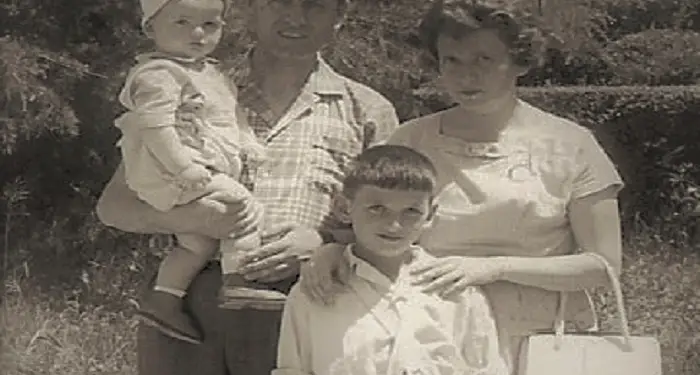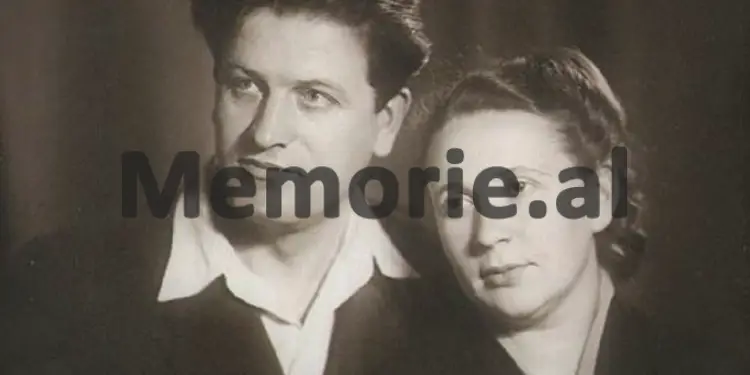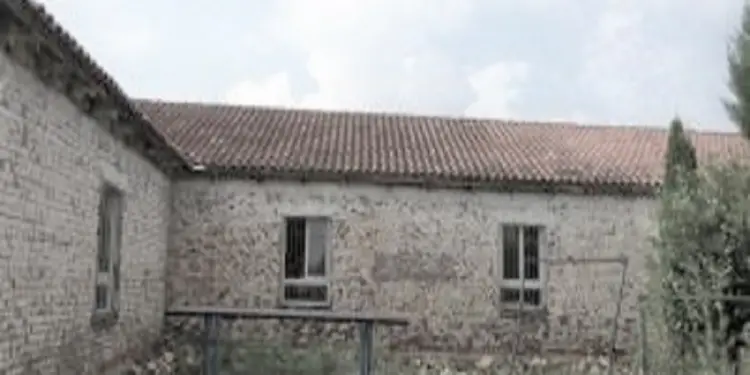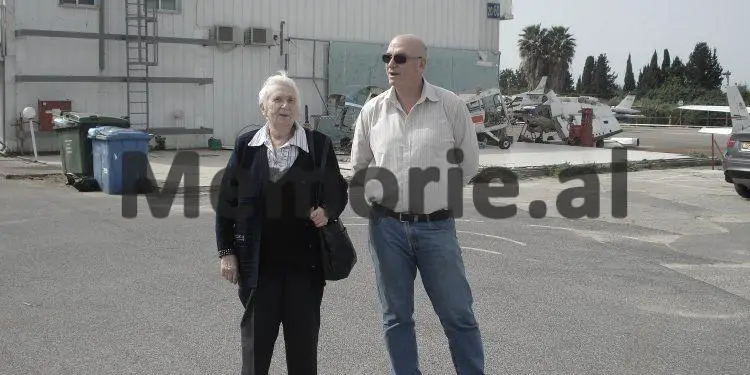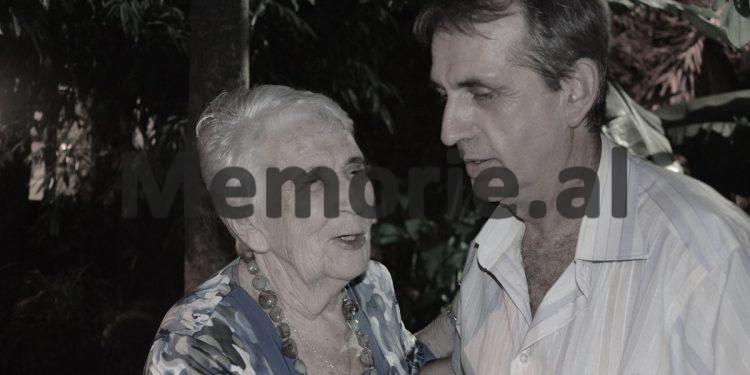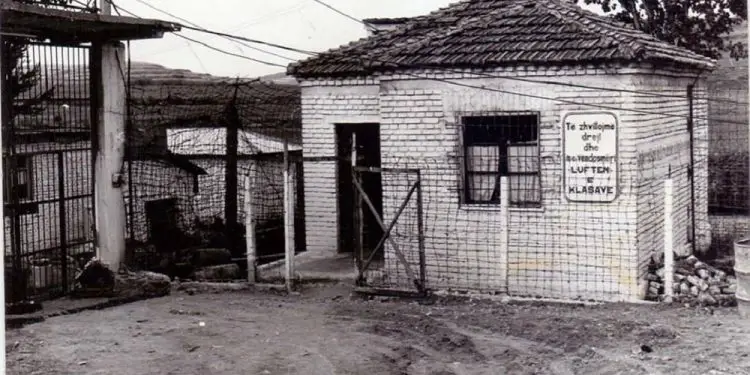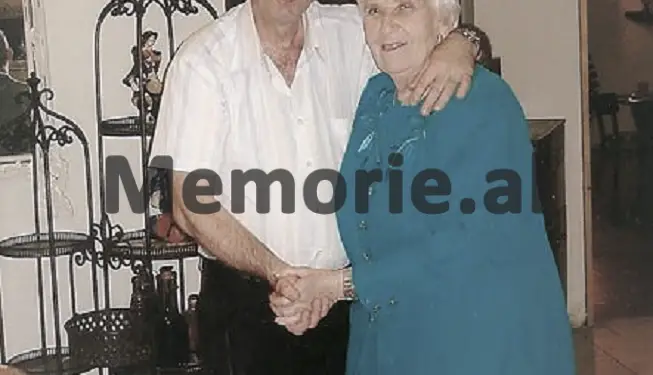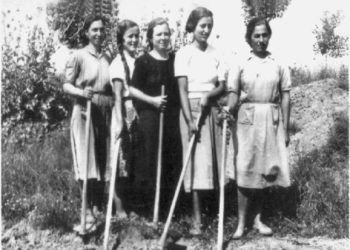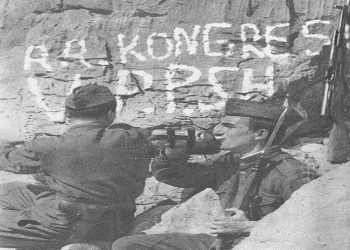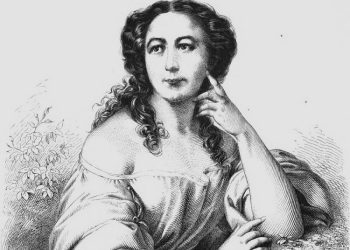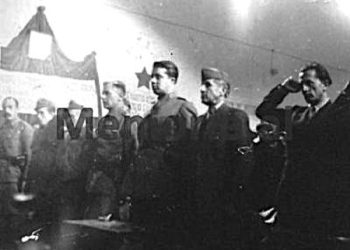Taisa Batkina Pisha
Part twenty-one
Memorie.al/ publishes the unknown story of the Russian Taisa Batkina (Pine), originally from Tula, Russia, the third child of a very poor rural family, who was left an orphan at a very young age, after her father lost her life while working in one of the coal galleries on the outskirts of Tula, where he worked as a miner (shortly after escaping arrest, accused of “supporting the enemies of the people”) and she grew up with difficulty great economic, as their city continued to be under the bombardment of German forces, which had reached as far as near Kursk. Taisa graduated from the Faculty of Chemistry, near the ‘Lomonosov’ University of Moscow, where she met and married the Albanian student, Gaqo Pisha, originally from the city of Korça, who at that time was studying at the Faculty of Philosophy in Moscow and both together in 1957, they returned to Albania, together with their newborn son, Sasha, and began life in the city of Tirana, where Taisa was appointed as a professor of Chemistry at the State University of Tirana, while Gaqo, in the chair of Marxism- where they worked until 1976, when the State Security arrested Taisa Batkina on fabricated charges, accusing her of being a “Soviet KGB agent” and sentencing her to 16 years in political prison, which she suffered in the “Women’s Prison” in the city “Stalin”, from where she was released in 1986, while her husband, Gaqo Pisha, had died in 1983, from a serious illness. The tragic story of Taisa Batkina (Pine), in the inhuman camps and prisons of Enver Hoxha’s communist regime, where she spent a decade of her life, along with many compatriots from the former Soviet Union, or other Eastern European countries, comes through her memories, published in a book entitled “We hoped and survived”, memories which, her son, Aleksandër Pisha, kindly offered her for publication, in Memorie.al
We hoped and survived
I dedicate it to the bright memory of my husband, GAQO PISHA
This is a book of memories. In it I want to tell about my life and that of my friends, Soviet women, who tried prison for several years just because they got the courage and got married and linked their fate with that of Albanian students. The prison was part of the great GULAG in the small Balkan country, Albania, where for many years the bloody communist regime of Enver Hoxha ruled, who was a loyal student of Stalin and a follower of his cause.
Through this book I would like everyone to learn about the inhuman trials we experienced and the horrible years we spent in Albanian prisons, just because we… fell in love! And let no one ever forget what totalitarianism, despotism is and what the consequences of this system are.
Continued from the previous issue
Part IV
For different people and fates
I want to write not only for myself, but also for the people who happened to us, for the Albanians, for the suffering of those women, who had no guilt. If you read these stories, you immediately realize that in Enver Hoxha’s Albania, notions such as: law, human rights, humanism were not known. Many Albanian women have been convicted of attempting to flee the country. In Albania, historically there have never been closed borders. People have always moved freely, traded, cooperated. Many had relatives or friends in neighboring Yugoslavia or Greece. But after coming to power in 1944, the communists began to close the borders. In the conditions of Albania, this was not an easy task; the border ran along the mountains, where the locals knew every trail. In the early years crossing the border on both sides of it was commonplace. But hand in hand, every border was closed, a signaling system was set up, thin wire rings were set up along the border, where those who wanted to escape were stranded. How much effort and money was spent in this small and impoverished country, how many people were killed while crossing the border will surely never be known! Crossing the border, or simply intent to cross the border, was considered a felony and punishable by 10 to 25 years in prison, or… shooting.
Albania has become a real prison, from which people have constantly sought to escape. To flee the country, people were forced to threaten persecution for various reasons, fear of revenge, unwillingness to join a cooperative and more. In the mountainous areas the cooperatives were not set up until late because the lands were small and the houses were far apart. The villagers, on the other hand, did not like them and for fear of persecution many of them tried to flee the country. Typical among the prisoners were charges of agitation and propaganda. Long before I was arrested, an elderly Albanian, given the habit of blood feuds, told me: “We used to kill our own enemy, now we kill him with the hands of the authorities. A report is enough, it does not matter whether it is true or false, and your enemy is imprisoned. “Espionage had become the norm. Every remark, every phrase could be changed, transformed as desired, you could bring two witnesses and that was enough for the other to be imprisoned for years. Indeed, such lawsuits were created by the Security Forces themselves, when they wanted to get rid of a person undesirable to them, isolate him, punish him and intimidate others. During the years of imprisonment, many Albanian women happened to us, from the most diverse: good and bad, sick and overwhelmed, manly and proud, strong and weak. I want to write about some of them, which I had especially close. In the camp there were many women from the north of the country, especially peasants, inhabitants of mountain villages, old and young.
Mereme
Plaka Mereme! Tall, very weak, exhausted! We called her “Mother Mereme”. I think he must have been some 70 years old; in prison it is difficult to determine age. She had almost no company at all, sitting all day on the side of the hill in the camp, with her head resting on her hands, very much killed, and talking to herself, shaking with her whole body. To arouse deep regret. I never asked him for anything. Her story was told to me by others. Prior to the liberation, her family had been wealthy, and this was enough for the popular power to persecute them constantly. They lived in a mountain village in the north of the country. Merem had four children, three sons and a lovely daughter. The eldest son, after a fabricated lawsuit, spent many years in prison and, after his release, returned home with the intention of escaping, crossing the border. Their village was located near the border. The boy knew the place well and was sure he would cross over. He left home after persuading his sister, two brothers, and a cousin to follow him. They knew that even if they stayed, the prison awaited them. They would accuse him of supporting his brother’s escape, of not escalating. The authorities always did so.
But they did not succeed; they could not cross the border, because the patrol spotted them and followed them. They hid in the mountains, in a cave. They pursued them for a long time and, when they discovered them, opened fire. Three were killed, two were arrested. Among those killed was Merema’s daughter. The parents knew nothing about the fate of the children. Suddenly a truck stopped in the middle of the village. From there they threw on the ground, in the eyes of the mother, the bodies of her three slain children. The third son, who had survived, was hanged in the village. Can one imagine the horror of this event, the grief of the mother, who lost her mind? Poor parents arrested them and sentenced them to 10 years in prison. Lawsuit: non-escalation for children…! We all felt sorry for Meremen. She was in really bad shape. Without the help of others, she was doomed to exist half-starved. We tried to help her as much as we could. But our options were so, little food and…! Sometimes we provided some handicrafts for a few pennies. Meremja, like all villagers, had golden hands. The wool thread she was pulling was as thin as if it had come out of the car. We tried to treat him as attentively and carefully as possible. The arrogant Meremja, with great difficulty, accepted any kind of help. (Pride is a distinguishing feature of Albanians, especially highlanders). Even some of the guards, who knew her story, took pity on her. I remember such a case. We, 10 women came out of the gate. We pulled out some big trash cans. It was also Merem. We turned, sat down at the gate, and waited for them to let us in. Suddenly, Nazifi, the guard who was acting as the camp economist, came out of the command depot. He handed me a bowl of vegetable oil and told me to give it to Merema. I could hardly persuade him to accept the oil. Meremen was released under the 1982 amnesty because of his age. I have not heard of her further fate.
Age Paja
From the first days of our stay in the camp, we noticed an old woman, calm, with an eagle profile. It was heavy, barely walking, leaning on the cane. Some details of the dress, the ribbon tied on the forehead, but also the dialect, showed that she was a peasant from the northern highlands. He must have been some 70 years old, maybe even older. E quanin Age Paja. Later we also learned her painful story. Agia was the oldest in the camp, by term. When we were brought to camp, she had 15 years inside; now they waited another 7 years. I had a good relationship with him. I always wanted to help him, as much as I could; I boiled water, took the pot of hot water to the bathroom. She got sick often and I washed her clothes and helped her wash herself. Once a year his son would come to him, bring him food, and even send him money from time to time. The women called her stinginess because there was food in the suitcase, but she always saved. But this was not greed, but the way of life and psychology of the Albanian peasant; perpetual poverty and fear before hunger, fear of not being left without food in prison. How do you know what would happen tomorrow, if the boy could not come, would not help…! She never mentioned her story, nor did I ask her. Only once did he save them and say to me: “All my fault is that I took my son to eat in the mountains. But is there a mother who would not do the same in my country? And she showed me the picture of her handsome son.
People who knew her story told that her son had been a friend and driver of a party leader in the city of Shkodra, a former partisan, and member of the People’s Assembly of Albania. He once fought alongside Mehmet Shehu, who was prime minister at the time of these events. The MP addressed the government with a request to help the villagers, to whom he had promised that their wish would be fulfilled. He was convinced that he, his old friend and partisan, would not return the favor. Mehmet Shehu initially promised to help him, but then returned the favor, exposing the lying MP to the people who had trusted him. For the Albanian highlander, this was a serious insult. The MP could not agree with this, he climbed the mountain with a group of friends, after resigning from any responsible post. For some time they hid in a cave, but spotted them and surrounded them with considerable force. In the battle that broke out, many were killed, among them the son of Ages. The deputy killed himself. Then a sensational trial took place in Shkodra. The defendants blamed them for active attempted violent overthrow of popular power, formation of a new government, etc. The sentence was harsh and many of the accused were shot. Agen was later arrested. The illiterate woman, 55, was accused that in the new government, she would hold the post of chairwoman of the women’s organization (at that time this task was called off a rank with a minister). Agen was sentenced to 25 years in prison. After a few years, his sentence was reduced to… 3 years.
Agia had many children (a four, a five). Everyone had started their own families. I told you a little above, only one boy came to meet him, the one who had the simplest job and had nothing to lose. Agia herself had asked that other children not come to meet her, because the connection with her meant for the children and grandchildren the loss of a job, or the deprivation of the opportunity to study, internment, but also imprisonment. All the children secretly helped the mother; openly they could not do it. In Agia prison, he worked constantly. He worked in the field for 15 years, in the herd of pigs, then he was exhausted, he often got sick and was hospitalized. Every year Agia wrote prayers to be released, referring to old age and deteriorating health, but always received negative responses in a rude, insulting form. I remember one such scene: a certain Bardhok came to check on the camp. He held positions of responsibility in the Security organs. He was a disgusting, fat-bodied, cat-like type with sunken eyes and drooping eyes. For days he roamed the hillside around the camp, watching with his eyes behind the barbed wire the women and girls. Agia, leaning hard on the cane, climbed the hill, approached the visitor and began to beg him to release her. He cried aloud: “Be careful, there is no mercy for the enemies, in prison you will rot!”
But Agia did not rot in prison, 22 years of sentence passed and the day of release came. Agia got ready, folded her belongings, her clothes. Her people lived far away. Even the camp was located away from the road by car or railway. According to camp rules, the released had to leave after the morning appeal. But to get Agen no one came, it was cold and we prayed that Agen would be allowed to wait in the canteen. They allowed it, but 15 minutes later came the order: “Age, get out”! She came out with the things in her hands pla old, lonely… She sat on the bench, outside the camp territory. An hour later we saw a woman running towards the camp. She approached Ages, weeping bitterly, knelt before her and began to kiss her hands, knees, face. She was the daughter of Ages. She had not seen her mother since. 22 years. We followed this scene from behind the barbed wire fence and cried. About an hour later, the other children and grandchildren arrived by taxi. Agen was dressed in a beautiful dress and taken. After her release, Agia lived for another 2 years within her family.
Lezja and Prena
Every night, after the sleep signal, the door of our room opened and a good, round-faced, elderly woman with a headscarf came to wish us good night. It was Lezja, a peasant from a Catholic village in the north. She was not alone; with him stood his sister-in-law, the wife of her husband’s older brother. Lezja was the housewife in this small family; he cooked, washed, cared for Prena, the weak, sick, elderly woman, in whose eyes fear and sadness had frozen forever. She was always silent, once sitting in the corner and sewing or embroidering something. Lezja was a kind, cheerful, wise woman. She understood things very well, felt very sorry for us, income from afar and locked up in jail. Nina told me: “When I was brought to the camp I was in a very serious condition, after a terrible investigation and trial. Suddenly an old woman approached me, said a few words of consolation, and suddenly began to tell me: “In our village we had a strange old man; when asked about something, he never answered on the spot, but moved his lips slowly, thought, then answered. One day he was asked why he did not answer immediately: “I used to count to ten,” he replied. – At first I was surprised, – Nina continued, – then I killed my mind and realized that Lezja (as they called her) warned me to be prudent, to speak as little as possible, to beware of spies and provocateurs… to count to ten, then to answer ”. We later convinced ourselves that Lezza’s advice was very valuable; the camp was full of spies.
The story of Leza and Prena was one of the most horrific that any unfortunate woman could tell in prison. In Leze’s husband’s large family there were four brothers. One of them was a Catholic priest. I must emphasize that the authorities in communist Albania, more than anyone else, persecuted the ministers of the Catholic Church, much more than the ministers of other religions. Many were shot, others rotted in prisons. When he learned by chance that he would be arrested, the priest gathered the brothers and they all decided to flee to Yugoslavia. On a dark rainy night (there were 17 of them, along with children and elderly parents) they crossed the Buna River by boat and sought political asylum in Yugoslavia. The unfortunates did not know that at that time the secret agreement between Albania and Yugoslavia for the return of the fugitives had entered into force. Albania had never allowed him to leave the country, while Yugoslavia at that time, in the late 1960s, was fighting with fugitives from Kosovo. At this time in Kosovo the influence of Albania had increased significantly; there was a movement to expand education in the Albanian language and other rights for Kosovo Albanians. Young Albanians from Kosovo crossed the border to complete higher education in Albanian at the University of Tirana. The Yugoslav authorities wanted to prevent this. Leza’s family was put on a bus and told they would take them deep into the country. The bus left. Lezja looked out the window and wondered how much everything here resembled the places they had just arrived from. Only when they saw the Albanian border guards did they understand everything./Memorie.al
The next issue follows




